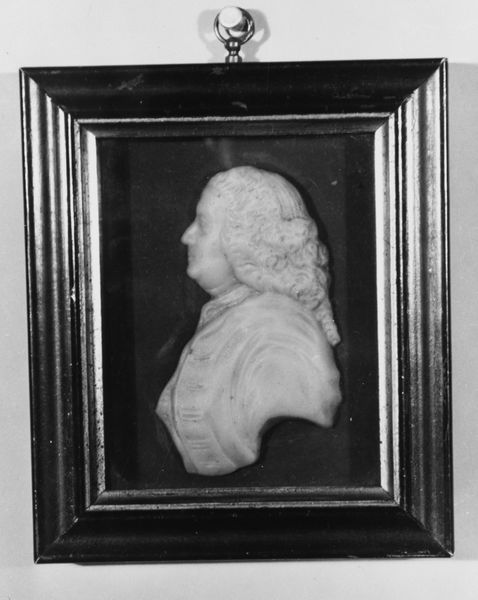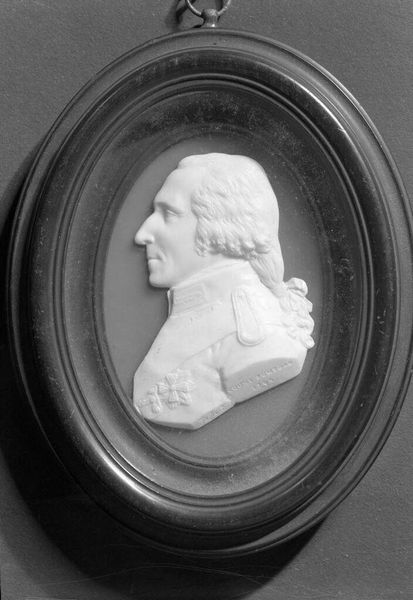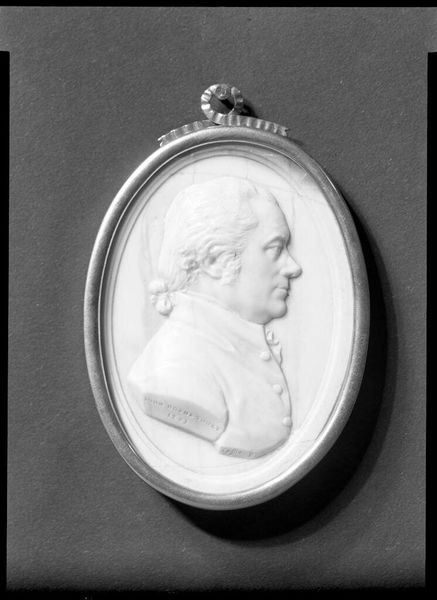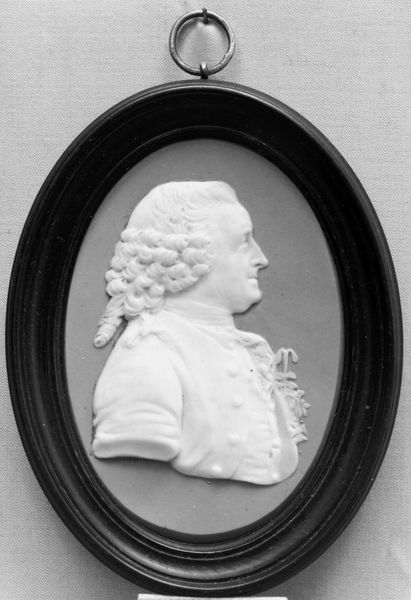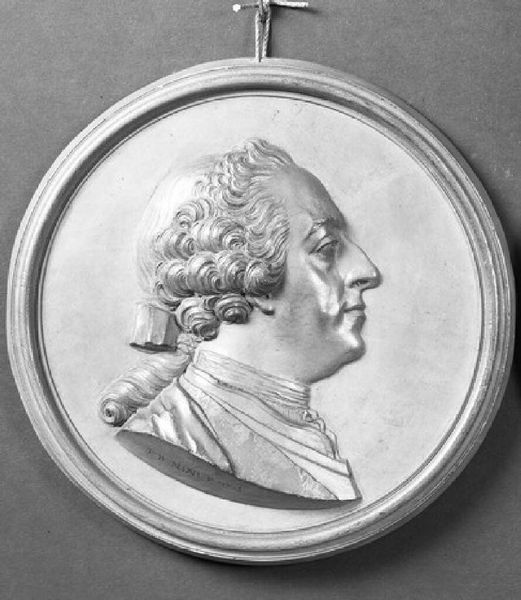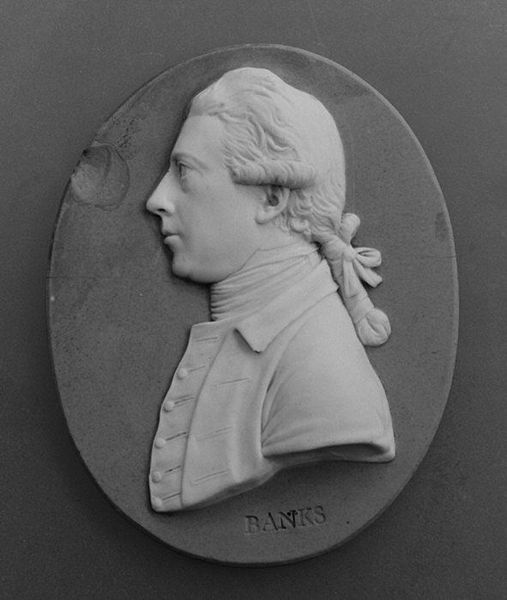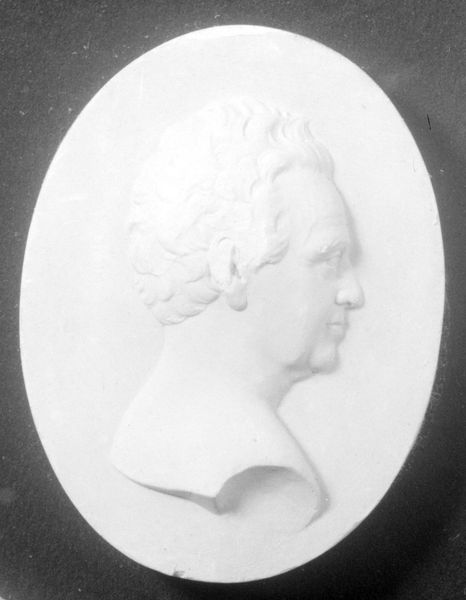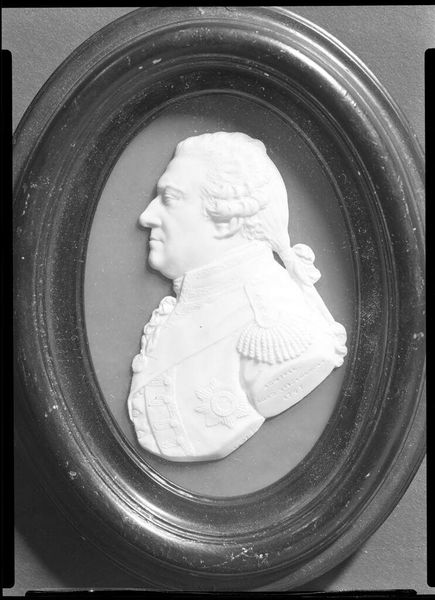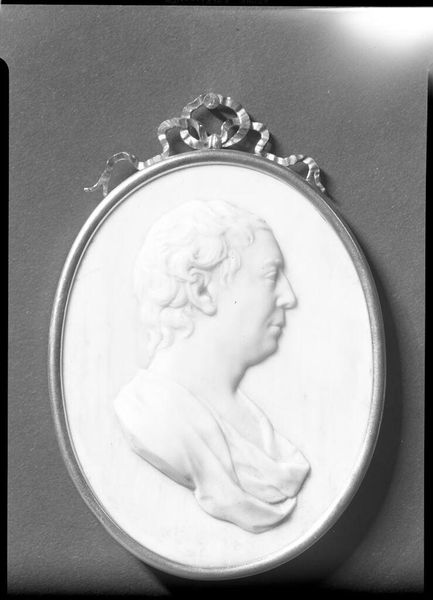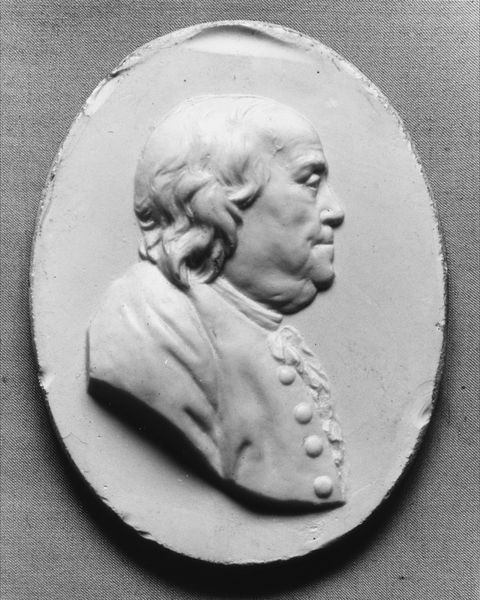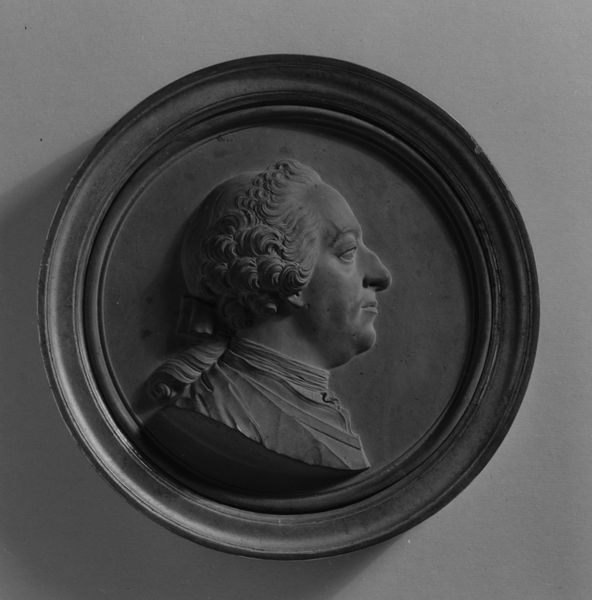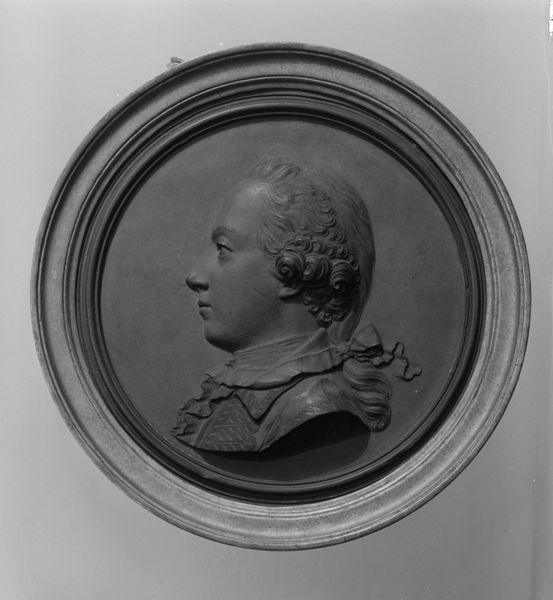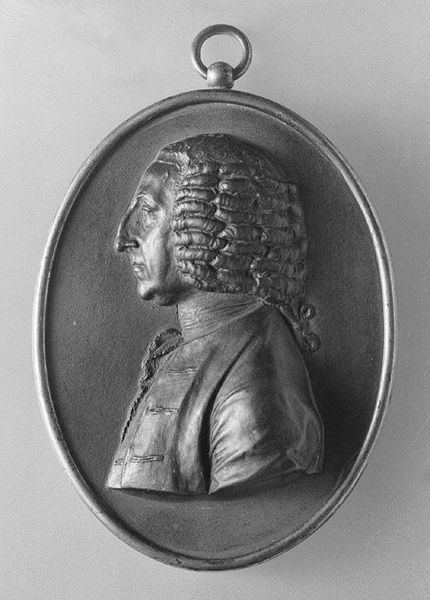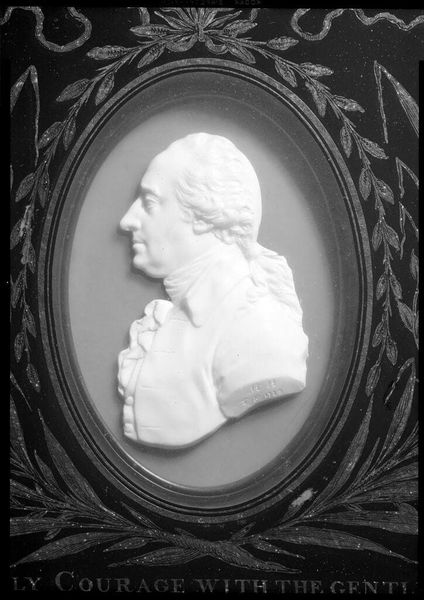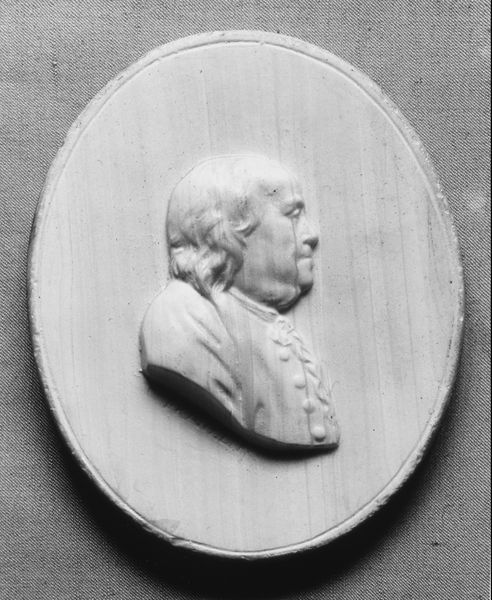
relief, sculpture, marble
#
portrait
#
neoclacissism
#
relief
#
framed image
#
classicism
#
sculpture
#
marble
Copyright: Public domain
This plaque of Priestley was made by John Flaxman out of Wedgwood Jasperware. It’s a stoneware, meaning that it is non-porous and doesn’t require glazing. Jasperware was invented by Josiah Wedgwood in the 1770s, and quickly became popular in Britain and beyond, largely because it could be manufactured so efficiently. The process involved a mold and skilled labor for hand-finishing the details. The smooth, matte surface feels almost like skin, capturing the likeness of Joseph Priestley in profile. The crispness of the modeling, especially the hair, is a testament to the capabilities of Wedgwood’s factory. Notice how the choice of material elevates Priestley, a celebrated intellectual, but also democratizes his image. Rather than commissioning an expensive portrait in oil paint or marble, one could acquire a Wedgwood plaque at a fraction of the cost, thanks to industrial production. This piece reminds us that even commemorative portraiture, when considered through the lens of its making, reveals complex social dynamics.
Comments
No comments
Be the first to comment and join the conversation on the ultimate creative platform.
